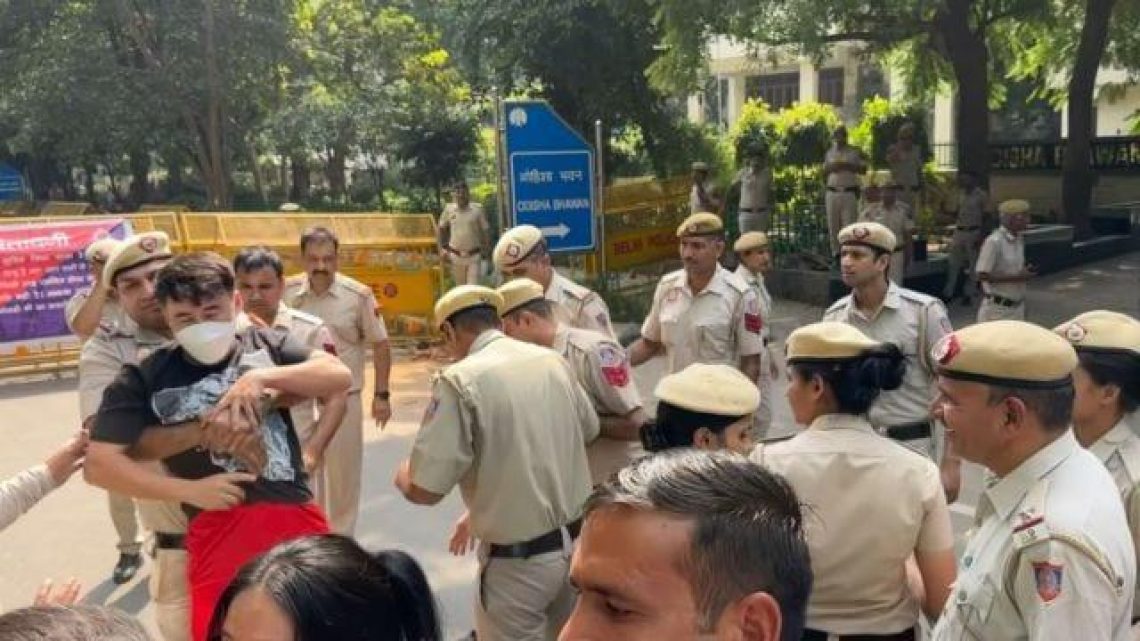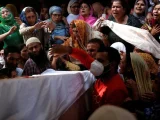
Democracy under Siege in India: Sonam Wangchuk’s Hunger Strike and Police Brutality
October 14, 2024On Sunday, Delhi Police detained several individuals outside Ladakh Bhawan, where climate activist Sonam Wangchuk has been on an indefinite hunger strike since October 6. His protest seeks to have Ladakh included in the Sixth Schedule of the Constitution.
The protesters, who gathered to support Wangchuk’s cause, were taken to the Mandir Marg police station. Initially, reports claimed Wangchuk was among those detained, but Deputy Commissioner of Police Devesh Mahla later clarified that he was not.
Mahla stated, “We have detained some students from outside Ladakh Bhawan. Sonam Wangchuk is not among them.” This statement reflects an attempt to minimize the situation but fails to address the underlying issues.
In a powerful video message, Wangchuk condemned the detentions, highlighting the oppressive enforcement of Section 163 of the Bharatiya Nagarik Suraksha Sanhita (BNSS) in New Delhi. This law prohibits unauthorized gatherings, effectively stifling dissent.
Wangchuk expressed his dismay, stating, “Many came for a silent protest and were detained. It’s sad that in the world’s largest democracy, we can’t even hold a silent protest.” His words underscore a disturbing reality: the erosion of democratic freedoms in India.
Labeling the situation a “blot on our democracy,” Wangchuk called upon the courts to intervene. His hunger strike symbolizes not just a demand for Ladakh’s inclusion in the Sixth Schedule, but also a broader struggle against the silencing of voices.
The arrests of peaceful protesters reveal a chilling disregard for civil liberties. This incident is not isolated; it reflects a growing trend of governmental suppression against anyone who dares to challenge the status quo.
The harsh reality is that dissent is increasingly viewed as a threat in India. The police action outside Ladakh Bhawan serves as a grim reminder that the right to protest is under siege.
Protesters gathered to peacefully advocate for their rights, yet they were met with heavy-handed tactics. This blatant violation of democratic principles demands urgent attention.
Sonam Wangchuk’s fight goes beyond regional demands; it is emblematic of a larger battle for freedom of expression and human rights in India. The world must take notice.
As the situation unfolds, it is imperative for citizens and activists to rally together in solidarity. The repression faced by Wangchuk and his supporters must not be ignored.
This incident is a wake-up call for all who cherish democracy. The time to stand against tyranny is now. The ongoing struggle in Ladakh is a crucial moment in the fight for human rights in India.
Ignoring these issues will only further embolden those in power to continue their oppressive tactics. The people of India deserve better than a government that quashes dissent with force.

